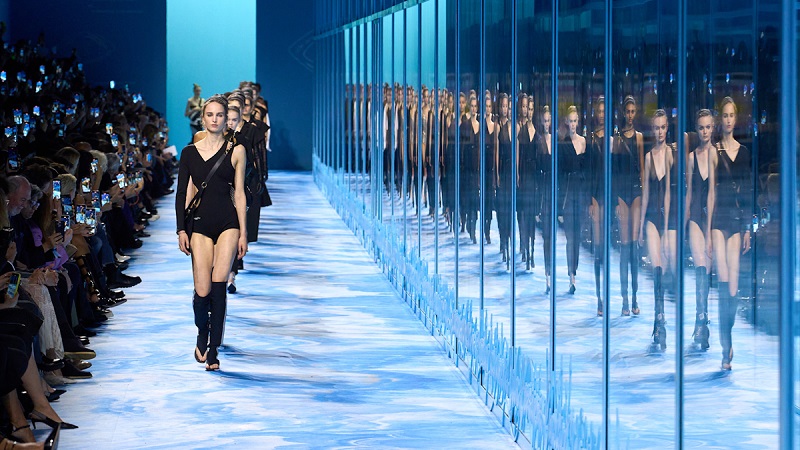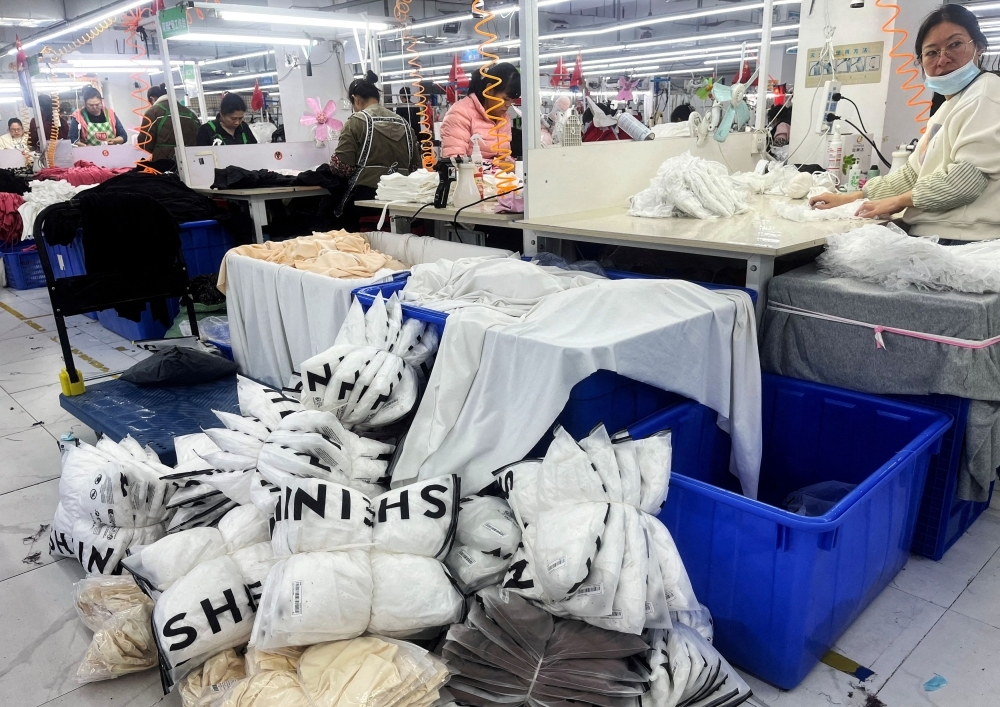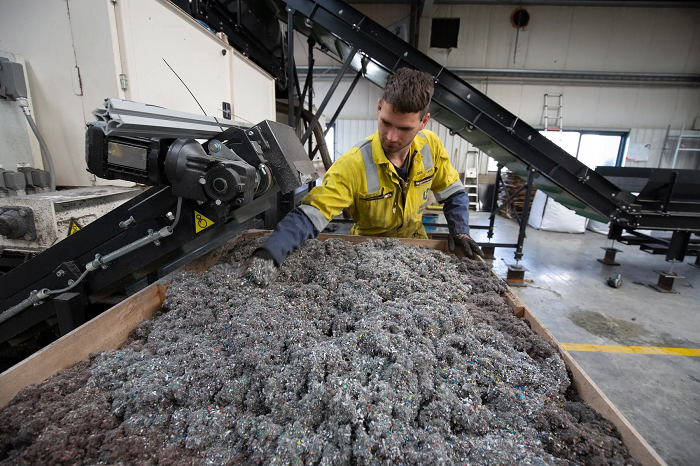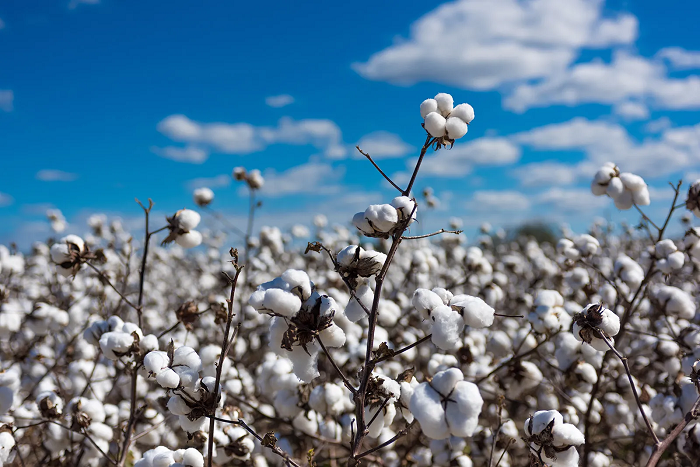FW
Textile giant David Whitehead (DWTL) is seeking over $30 million to expand capacity by setting up a new factory and procure critical spares, working capital as well as settle prejudicial obligations. The company needs $20 million for the new factory; $2 million for spares; $1,5 million for working capital; $1 million for shares acquisition; and $6 million for prejudicial obligations settlement Negotiations are being made to secure foreign currency for the procurement of spares and new plant for the fabric and spinning divisions which were likely to come from Germany and China.
Acquisition of new machinery is envisaged to result in the increase of production capacity by 150 per cent from 6 million meters to 15 million meters of fabric per annum and revenue of about $45 million. The new machinery will enhance competitiveness through improved quality consistencies, higher efficiencies and economies of scale, thereby ensuring that the company will be able to consolidate its position on the local market as well as overseas markets.
Coloreel has introduced an instant thread coloring unit for the European market at Avantex, held from September 17 to 20, 2018 in Paris. The unit provides the possibility of making fantastic embroideries with amazing quality. The customers will be able to create new unique embroideries that no one has seen before.
Coloreel offers improved logistics as customers need only one thread, but can get unlimited colors. It increases embroidery production speed with no trims needed for the color changes. Coloreel also reduces waste of resources by producing the thread you need and minimising water usage. Shipping of the Coloreel units to customers in Europe will start at the beginning of 2019 with the USA following. The next step for Coloreel is to broaden the distribution in a very quality assured and service-oriented way. The product launch of the instant thread coloring unit was a clear indication that the whole world is longing for this product.
Myanmar Textile Entrepreneurs Association has reported that the Myanmar textile industry has incurred losses due to dollar appreciation. Yin Yin Moe, Secretary, averred dollar appreciation has significantly affected the local apparel industry in Myanmar as they have to import all materials from abroad.
September saw a significant variation in the value of US dollar. Notably, the dollar value jumped from Ks 1,500 in early September to Ks 1,650 on 20 September. Some of the textile firms have suspended sales due to the losses and will resume only after normalcy is restored. Moe said the local market may have incurred losses ranging from 50 to 80 per cent, though it will be difficult to measure the extent of losses accurately. It is also imperative to note that some garment firms have temporarily suspended workers owing to losses, while many have stopped recruiting new workers.
A study on the benefits and impacts of joining the Comprehensive and Progressive Agreement for Trans-Pacific Partnership (CPTPP), a newly formed bloc of 11 Pacific Rim nations excluding the US, is likely to be finished later this year. The Trade Negotiations Department has finished public hearings held in all regions throughout the country from August to September to gather feedback from stakeholders about the CPTPP.
The department will propose the initial study and public hearings to the CPTPP working committee chaired by Commerce Minister Sontirat Sontijirawong in November. The public hearings highlighted concern about issues relating to market access for goods, services and investment; intellectual property (IP) protection; public health; investor-state dispute settlement mechanisms; and government procurement.
Thai farmers and civil society organisations also vented their concerns about the impact of the new pact's IP chapter that prevents them from saving and reusing seeds that contain patented plant material.
Sontijirawong insisted that farmers would still have the right to collect and reuse seeds, but only for a non-commercial purpose. Various farmer groups also raised concerns about the dumping of agricultural products from other countries on the local market and higher competition from imports. Another roadblock was the possible import of genetically modified organisms (GMOs) if Thailand joins the new bloc.
New York Men’s Day (NYMD) will be held as part of New York Fashion Men (NYFM) from June 3 to 5, 2019. Aimed at nurturing emerging talent and consolidating top men’s wear designers in one venue, NYMD will feature collections from nine emerging designers for the spring/summer 2020 season. New participating designers include Abysm, Amirok, David Hart, Feign, Ka Wa Key, Tanaka, Timo Weiland, Todd Hessert and Vasilis Loizdes. Returning brands include Descendants of Thieves, Krammer & Stoudt, Lucio Castro, Private Policy and Wood House Army. For the first time NYMD will debut an all stars showcase where previous NYMD alumni will present three looks from their spring/summer 2020 collections.
Each participating fashion brand will present its collection in its own individual studio space designed to highlight the label’s identity and inspiration. Taking place simultaneously over two-hour periods, five designers will present in the morning and four in the late afternoon. The multi-brand format creates ease-of-flow for media and buyers, allowing them to move through studios and spend time with designers as their time allows.
This marks the first season since NYFM shifted its dates from July to June. The reason for moving the dates to June was to provide buyers, stylists, and the media a chance to see the collections before they head to Europe for the fashion weeks.
Imports of readymade garments from Bangladesh have increased by 53 per cent
Cotton garments such as trousers, shorts and shirts and cotton T-shirts are among the top four imported items. And this surge is catching up with synthetic textile products, too, at a much faster rate.
When all these products are commonly manufactured in clusters such as Tirupur, Chennai, Surat and Ichalkaranji, Indian manufacturers seem to be losing out to Bangladesh.
Before GST, Indian importers had to pay a countervailing duty of about five percent to seven percent, which drove up the costs of these garments. With GST having subsumed this duty, apparel from Bangladesh has become cheaper for Indian importers by 5 per cent to 7 per cent. Also Bangladesh has the advantage of having lower minimum wages than those in India. This reduces the cost of production and makes clothing cheaper. Another factor which makes Bangladesh competitive is the fact that it enjoys duty free imports of fabrics and garments from China. The availability of cheaper fabric, too, brings down manufacturing costs. Lastly, India has a lot of small production units and factories. So if retailers want to procure 100,000 pieces, they’ll have to source them from several Indian garment producers, whereas they can procure the same easily in Bangladesh by placing the order to one or two firms.
Vietnam will host four exhibitions simultaneously from, November 21 to 24. One is the Asia International Dye Industry, Pigments and Textile Chemicals Exhibition. Second, is the Vietnam International Footwear Machinery and Material Exhibition. This is a new platform for footwear producing equipment and materials. It will showcase footwear machinery, injection machinery, artificial leather machinery, handbag and suitcase machinery, CAD/ CAM system, footwear materials, knitting shoe machinery, and components in the footwear value chain.
Then there is the Vietnam Textile and Garment industry exhibition (VTG) will be attended by more than 400 exhibitors, including hundreds of top brands, from mainland China, Germany, Hong Kong, India, Japan, South Korea, Malaysia, Portugal, Taiwan, Turkey, and Vietnam.
VTG and the Vietnam International Textile and Apparel Accessories exhibition will have pavilions and booths. Top brands at the events will include: Bao Lun, Richpeace, Tajima, and ZSK, who will display their latest embroidery machines, and Heinz Walz, Epson, Grafica, and Sulfet, who will bring printing machines. Beworth and Silk Road will demonstrate their latest flat knitting machines. Japanese sewing machines brands like Brother, Hikari, Juki, Yamato will also be present.
The two events will also host several seminars featuring speakers from various departments, foreign affairs and universities speaking about strategies and practical measures to develop the textile and garment industry.
Secondhand Japanese clothing has great demand in Southeast Asia and China. Treasure Factory, which has about 180 locations in Japan, has two shops in Thailand, with plans to add eight more by 2021. The shops target customers in their 20s to 40s mainly selling T-shirts and pants from Japan.
Unlike Thai secondhand shops -- typically street stalls with items piled up randomly -- Treasure Factory operates out of buildings and carefully organizes items by type, such as jackets and pants. It also examines articles to detect stolen items and hazardous objects, such as needles. Since the beginning of fiscal 2018, Treasure Factory’s sales in Thailand are up 20 per cent.
Geo Holdings, an used clothing shop in Japan, opened the first of its planned 20 Malaysian stores in June. The stores will mainly sell shirts and jeans from the company’s Japanese stores. The company also hopes to supply local used clothing shops and will use its Malaysian base as a gateway for exports to neighboring southeast Asian countries.
Japan’s used goods market recorded an annual growth of 7.4 per cent in 2016. The aggregate gross profit margin for Japan’s general used merchandise businesses is about 65 per cent, which is higher than that of merchants dealing in new products.
The Bangladesh government has initiated penal measures to curtail non-compliance of RMG factories pertaining to labor norms. The government’s move is being supported by the International Labour Organisation (ILO). Consequent to the government initiative, the Department of Inspection For Factories and Establishments suspended the licences of 219 factories catering to the RMG sector. Further, the government body has also requested the apex bodies in charge of RMG sector, namely the Bangladesh Garment Manufacturers and Exporters Association (BGMEA), and Bangladesh Knitwear Manufacturers and Exporters Association (BKMEA), to stop issuing utilisation declaration to these factories.
Both export bodies have decided to pursue the matter with their 219 non-compliant member factories to decide an appropriate course of action that will help meeting government norms. The complaint given to these export bodies stated the 219 units posed hazardous working conditions and raised serious safety concerns. The factories have failed to make the required progress in ILO’s remediation process that was set in place to upgrade safety standards.
Pakistan sees the trade war between China and US as beneficial. The country is exploring ways to benefit from it. One way is for Pakistan to import Chinese semi-finished goods, and with a little value addition, these goods can be exported to the US and western countries.
Pakistan also wishes to bridge the trade gap with China and negotiations for a FTA are progressing. The FTA covers more than 6,700 tariff lines at eight-digit tariff code under the harmonised system. The two countries have discussed tariff reduction modalities for the second phase besides the electronic data interchange, services and investment, sanitary and phyto-sanitary and technical barriers to trade measures.
Currently Pakistan is imposing zero per cent duty on 35 per cent of the products while China has reciprocated with zero per cent duty on 40 per cent of the products. Pakistan wants China to grant deeper market access for 35 to 40 tariff lines of Pakistan's prime export interest in the first step to make the FTA mutually beneficial and to promote acceptability of the second phase.
Cotton production in Pakistan is on the decline and this is hurting the textile industry. The country’s exports of fashion apparel comprise 36 per cent of its total textile exports.












